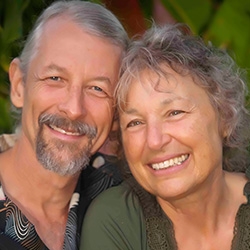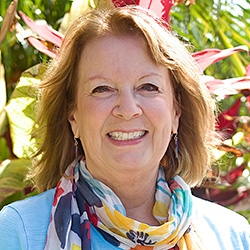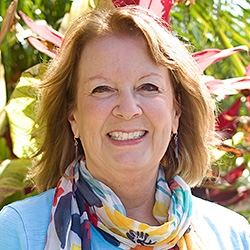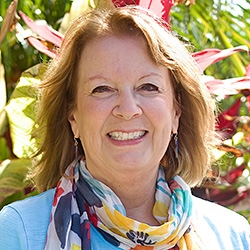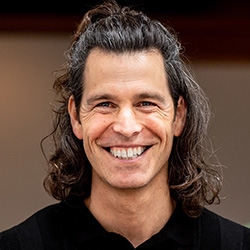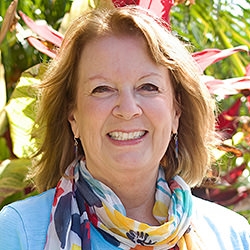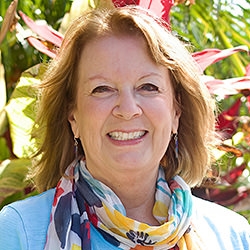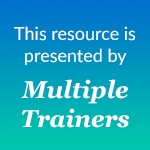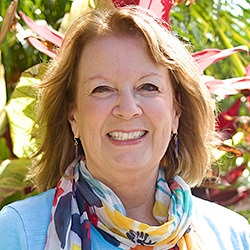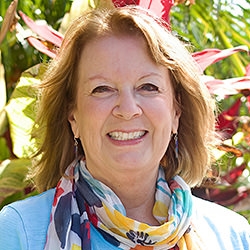

Search Results: connection
-
Raj Gil offers tools and dialogue to help you respond to anger with awareness & care in the moment.
-
Anger and resentment can signal unmet needs. Through mourning those needs and practicing self-empathy, we may let go of blame, embrace reality, and reclaim responsibility for fulfilling our own needs. This process may lead to emotional transformation through conscious reflection, and a new outlook.
-
Yoram Mosenzon explores the core NVC principle that others do not cause our feelings—our interpretations and unmet needs do.
-
Even leaders we admire may exhibit behaviors that could be labeled as abusive, at least slightly. This includes not treating followers as equals, using charm, and hiding or twisting truth. In such scenarios a key reason for this is loneliness. If we're using our work and position primarily to gain for appreciation, acknowledgement, and acceptance then we need to examine our own loneliness. We need feedback to keep such conduct in check.
-
This explores four types of feedback: destructive, constructive, by demonstration, and dialogue.
-
Trainer Tip: We often find ourselves slipping into old behaviors that we would rather change. This is because we don’t have a new plan for responding to the same old situations. In that case, notice whether you are slipping into old behaviors today. Connect to your unmet needs and then identify a new strategy for the situation.
-
Trainer Tip: Every time you criticize yourself, you cause yourself to feel shame and guilt, which promotes depression and stagnation. Instead, bringing in more self compassion can increase opportunities for change. Do this by acknowledging your needs (or values) that aren’t met by your actions. Read on for how to do this.
-
Listen as Mary Mackenzie shares an eight step path to create your own NVC learning activities, based on your own NVC learning experience. In this session, Mary uses the value of requests and observations as teaching examples.
-
- Welcome unpleasant feelings and meet their flow in and around the body
- Discover how you can enjoy Anger as a beautiful life force
- Realize insecurity and depression as a door to the core of your humanity
- Know how to use fear to firmly connect to your life and strength
-
Trainer Tip: If you are motivated by fear, guilt, blame or shame, your actions will usually be motivated by avoiding pain. The best way to experience permanent, lifelong change is to focus on how your life will improve when you make a change. Notice when you attempt to motivate yourself and others with guilt, blame, or shame today, and then look for motivations that enrich life instead.
-
Shared story has been a way for groups to unite in opposition to a common enemy. But more divergent and virulent beliefs/stories swirl through the internet and social media, facilitating people to polarize against one another. So notice when you're caught in a polarizing story; try shifting focus to observing your mind; somatic presence; underlying commonality; consciousness as universal need, energy, and spaciousness; and the natural compassion and generosity that flow from this.
-
Trainer Tip: Sometimes you might find yourself in a situation where your need for love is not met. Consider ways in which a partner or friend could meet your need for love. Be sure to request something the other person is capable of doing. Whatever the situation, it is our responsibility to clarify how we can meet our need for love, while also considering the abilities of our loved ones to comply with our requests.
-
Veteran Trainer Sylvia Haskvitz reviews the key distinctions/differentiations in NVC.
-
October always makes me think about Marshall Rosenberg, the founder of Nonviolent Communication. He was born October 6, 1934. If he were still alive today (he died February 7, 2015), he would be 89 years old!
-
- Discover how to translate NVC into your natural, authentic voice
- Embody your values through tone, presence, and nervous system attunement
- Learn the art of repair and returning to love when things go off track
- Finally, be able to drop the script and trust your internal compass in the moment!
-
In June, 1996, I had an epiphany. In a motel room in Indiana, the night before returning home from a solo camping trip in Michigan and Canada, I discovered how much I had lost in my life because of so fiercely protecting myself. Up until that day, bringing forth my vulnerable self was to be avoided at all costs, which kept me numb much of the time, disconnected from myself and from much of life. Alone in my room, I cried, I talked out loud, and I finally exclaimed to myself that I wanted to reclaim every last bit of my vulnerability, just like I had it as a child.
-
We can choose our stories of interpretation, and how to respond. And while stories of self-sufficiency can (to a degree) give us more influence over our own lives, they don't erase oppression, war, nor climate change. When stories omit a lens that includes impacts of interdependence, oppression, and structural inequities, stories can also keep us disconnected and blocked from compassion for self and others -- and perpetuating an oppressive status quo. However, with this lens we can make greater compassion and collective liberation possible. Even as the outcome is unknown.
-
NVC Mingle is a fun group exercise to practice NVC principles and create quick connections with others.
-
I ended last month’s Growing Roots letter with a question to you: “Do you remember that you are a gift?” I hope you had moments throughout July that reminded you of this! I am still thinking about it, actually.
-
Less than 2 weeks ago from the time I’m writing this letter, Hamas militants crossed from Gaza into Israel and killed more than 1,300 people, most of them civilians. Israel then retaliated and killed over 3,000 Gazans, most of them civilians. The death rate continues to increase every day.
Quick Links

Stay in Touch!
We value your privacy, won't share your email address and you can easily unsubscribe any time.





